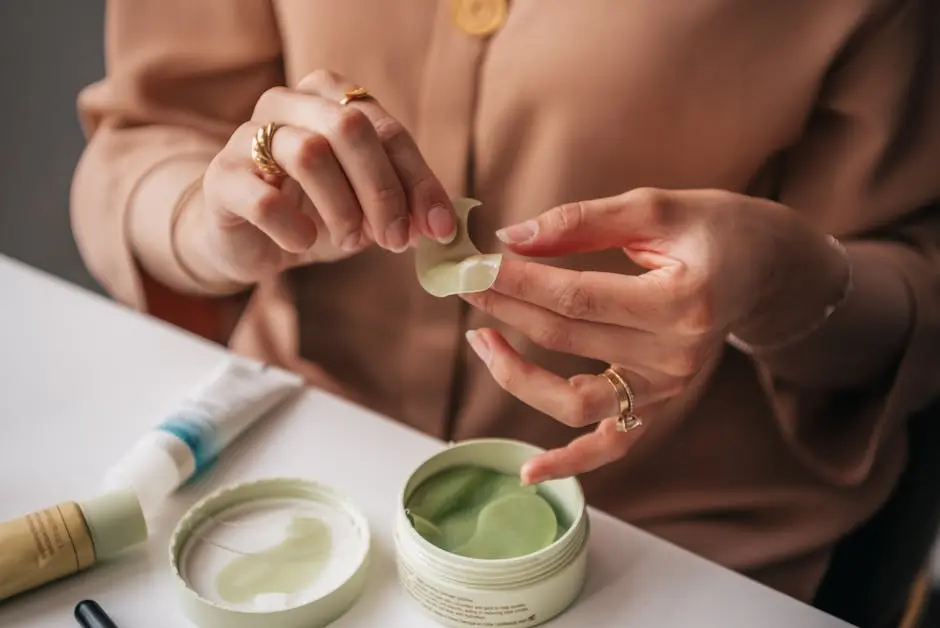Dark spots on the skin can be frustrating and even distressing, but understanding their root causes can empower you to take control of your skin health. In this blog, we will explore the various factors that contribute to the formation of dark spots, from sun exposure to hormonal changes, and what you can do to prevent and treat them effectively.
What are Dark Spots?
Dark spots, often referred to as hyperpigmentation, are patches of skin that become darker than the surrounding area. They can vary in size and may appear on any part of the body, but are most commonly found on sun-exposed areas such as the face, hands, and shoulders. Understanding what causes these spots is vital in addressing them. Not only are they a cosmetic concern, but they can also give clues about your overall skin health.
The primary reason for the development of dark spots is the overproduction of melanin, the pigment responsible for the color of our skin, hair, and eyes. This process can be triggered by several factors and can occur at any age. It’s essential to distinguish between dark spots caused by benign factors and those that may indicate a skin condition. Knowing the differences is crucial in determining the right course of action.
The Role of Sun Exposure
One of the most significant contributors to dark spots is sun exposure. Ultraviolet (UV) rays from the sun stimulate melanocytes, the cells responsible for melanin production. Prolonged exposure without adequate protection can lead to an increased risk of developing dark spots, particularly for individuals with lighter skin types. It’s not just about getting sunburned; even a gradual build-up from unprotected sun exposure can be harmful.
Beyond causing immediate skin damage, the sun’s rays can lead to lasting changes over time. Many people don’t realize that dark spots can develop months or even years after sun exposure, often surfacing when the skin begins to age. This is why consistent sun protection, such as broad-spectrum sunscreen, is critical in any skincare routine.
It’s not enough to simply apply sunscreen on sunny days; incorporating daily sun protection into your skincare regime is vital even on cloudy days or while indoors, as UV rays can penetrate windows. Understanding the importance of this habit can go a long way in preventing future dark spots.
Hormonal Changes and Dark Spots
Hormonal fluctuations can also significantly influence the appearance of dark spots on the skin. Conditions such as pregnancy, menopause, or hormonal imbalances can lead to an increase in melanin production. This is often seen in a condition known as melasma, which typically manifests as brown or gray-brown patches on the face.
Understanding the connection between hormonal changes and dark spots is crucial, especially as women may experience these changes at various life stages. Being aware of how hormonal fluctuations can affect skin pigmentation can help you address any emerging dark spots sooner rather than later. If you suspect that hormones are influencing changes in your skin, discussing this with a healthcare provider may lead to tailored strategies for management.
Genetics: Are You Predisposed?
Genetics play a fundamental role in how our skin responds to various factors, including sun exposure and aging. If your family has a history of dark spots or hyperpigmentation, it’s likely that you may be predisposed to them as well. While you can’t change your genetic makeup, understanding your predisposition can inform your skincare choices.
For example, individuals with darker skin tones tend to have an increased number of melanocytes, which may lead to a higher likelihood of developing dark spots, especially when exposed to triggers like the sun or hormonal changes. Recognizing this risk allows for proactive measures to keep your skin healthy.
Skincare Products: Friend or Foe?
The skincare products we use can have a considerable impact on the health of our skin. Some ingredients, like retinoids, are known to lighten dark spots, while others may inadvertently exacerbate the problem. For instance, products that cause irritation or inflammation can lead to increased pigmentation in response.
It’s vital to read labels carefully and understand how different ingredients work. Many natural products claim to brighten the skin, but their efficacy can vary widely. Incorporating medical-grade skincare with advanced delivery systems can also be beneficial in your journey toward achieving a more even skin tone. Relying on reputable brands with evidence-backed formulations, along with professional skin treatments you can receive from your local esthetician, can help in the quest for clear skin.
Moreover, patch testing new products can prevent adverse reactions that may lead to dark spots. What works for one person may not work for another, so personalizing your skincare routine based on your unique skin type and concerns is essential.
Lifestyle Factors Contributing to Dark Spots
Beyond environmental and genetic factors, our lifestyle choices significantly contribute to the formation of dark spots. Poor diet, smoking, and lack of sleep can all influence skin health and pigmentation. A deficiency in essential vitamins, like Vitamin C and E, can hinder the skin’s ability to repair itself and protect against damage.
Furthermore, stress can exacerbate skin conditions, leading to hormonal fluctuations that may result in dark spots. Therefore, adopting a balanced diet, regular exercise, and adequate sleep can help improve not just your overall health but also the appearance of your skin.
Ultimately, embracing a holistic approach to self-care is vital. By nurturing your body and mind, you’re also nurturing your skin, creating a more resilient barrier against dark spots.
Prevention Strategies for Dark Spots
Preventing dark spots begins with understanding the triggers that lead to their formation. One of the most effective prevention strategies is sun protection. Applying a broad-spectrum sunscreen with at least SPF 30 every day, regardless of the weather, can significantly reduce the likelihood of developing dark spots.
In addition to sunscreens, wearing protective clothing, such as hats and long sleeves, can further shield your skin. Regularly seeking shade during peak sun hours is another effortless yet effective method. These simple habits can have far-reaching benefits for your skin.
Moreover, establishing a consistent skincare routine that includes exfoliation can help remove dead skin cells and promote even skin tone. However, care should be taken not to over-exfoliate, as this can cause irritation and lead to further pigmentation issues.
Effective Treatments for Dark Spots
When it comes to treating dark spots, various options are available, from over-the-counter products to professional treatments. Ingredients such as retinoids, vitamin C, and kojic acid are often recommended for their skin-brightening properties. These products can help reduce the appearance of dark spots when used consistently.
For more pronounced dark spots, professional treatments such as chemical peels, laser therapy, and microdermabrasion may offer faster results. These methods work by removing layers of skin or targeting melanin production directly. Consulting with a dermatologist can provide you with personalized advice based on your skin type and concerns.
In conclusion, finding the right combination of prevention and treatment can empower you to take charge of your skin health and reduce the appearance of dark spots. With the right information, you can navigate your skincare routine with confidence.
Take Control of Your Skin Health
By recognizing the root causes of dark spots, you can make informed decisions about your skincare regimen and seek appropriate treatments. Whether it’s adjusting your sun protection habits or consulting with a dermatologist, knowledge is your best ally in achieving a clearer complexion.


